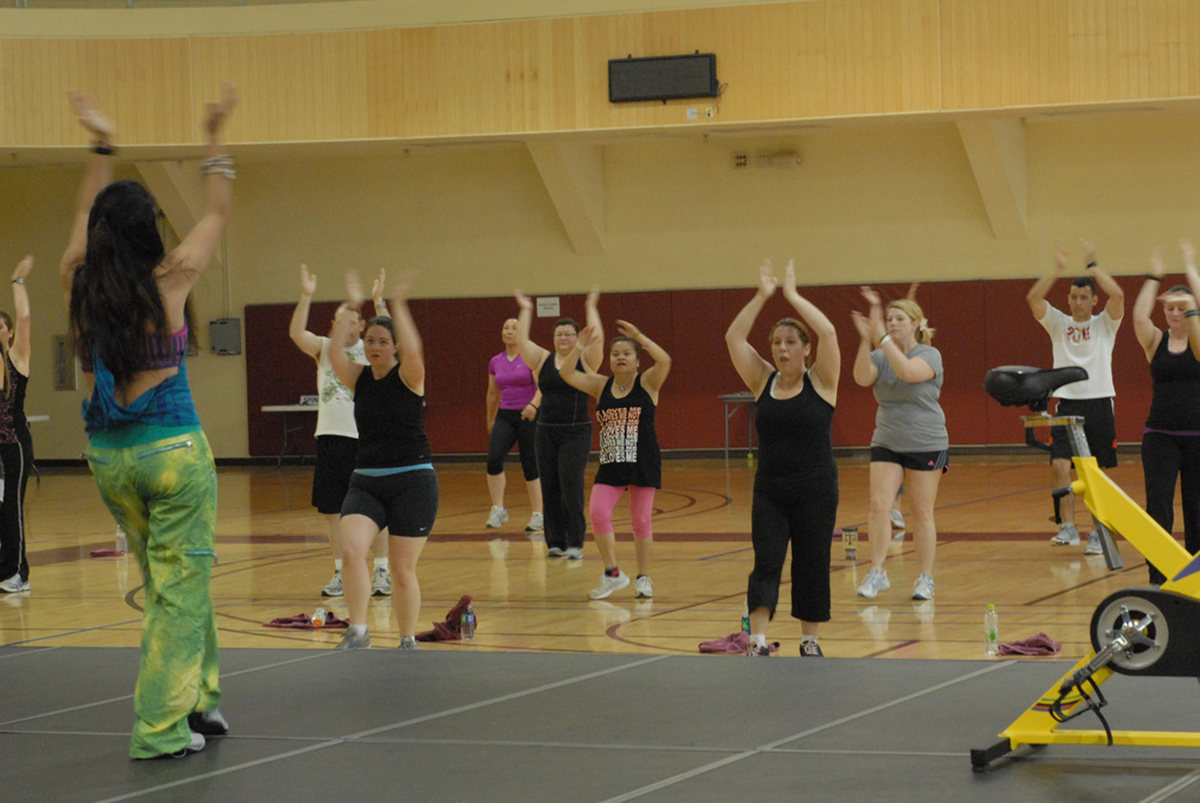Eating Better, Drinking Less, and Exercising More Would Drastically Lower Cancer Rates
Even greater reductions in cancer rates could be enjoyed in China, the WCRF suggests.

Dr. Martin Wiseman, a scientific and medical adviser to the WCRF, told Reuters, "It is distressing that even in 2011, people are dying unnecessarily from cancers that could be prevented (by) maintaining healthy weight, diet, and other lifestyle factors." Healthier lifestyles, Wiseman and colleagues say, could save 61,000 people from developing cancer in Brazil, 79,000 in the United Kingdom, 340,000 in the USA, and 620,000 in China.
There are over 300 known types of cancer. Worldwide, every year 12.1 million people are diagnosed with cancer, and over 7 million people die from cancer. The WCRF and the American Institute for Cancer Research estimate that cancer deaths will double over the next 19 years, mostly in poorer, developing countries. While eating healthy foods, exercise, and not smoking is a simple message, it is very hard to convey to people who have personal histories of food deprivation, hard physical work for low pay, and only recently being able to afford cigarettes.
What Are the Lifestyle Changes that Could Prevent Cancer?
Some experts link the epidemic in newly diagnosed cancers to vitamin D deficiencies. Ironically, higher incomes go hand in hand with vitamin D deprivation, as more and more people are able to retreat to air conditioned homes and workplaces from the tropical sun. As recently as 30 years ago, in many parts of the developing world, as well as in southern Europe and even parts of the United States, air conditioning was practically unknown.
Also concurrent with the worldwide epidemic of cancer is the availability of prepackaged, processed, industrially manufactured food. Foods that sit on a shelf are, like human tissues, subject to attack by free radicals that can enter the body when the food is eaten. Tiny shops that once only offered locally produced, fresh produce, meat, and bakery goods—because there was no way of preserving them—now sometimes offer mostly packaged food. This food is exposed to heat and light that degrades it, often for months before sale.
Read More: Tips For Breast Cancer Prevention
Likewise, a lack of exercise is also recent development in most poorer countries. People who once had to do hard physical labor in the fields now have desk jobs in front of telephones or computers. The additional income earned at those jobs allows them to hire people to do physical work at home. While the economy benefits, weight control suffers. Along with it, risk of pancreatic, breast, and colon cancers rises.
Sun protection is essential for preventing skin damage and reducing the risk of skin cancer. Use broad-spectrum sunscreen with at least SPF 30, reapply every two hours, and after swimming or sweating. Seek shade during peak sun hours, wear protective clothing like long-sleeved shirts, hats, and sunglasses, and avoid tanning beds. Regular skin checks for any changes in moles or new growths are also important for early detection of skin issues.
Vaccinations play a crucial role in preventing diseases, including some cancers. Vaccines like the Human Papillomavirus (HPV) vaccine can significantly reduce the risk of cervical and other types of cancer. Hepatitis B vaccine helps prevent liver cancer. Staying up-to-date with vaccinations according to health guidelines not only protects individual health but also contributes to community immunity, preventing the spread of infectious diseases that can lead to serious health complications and cancerous conditions.
Don't forget, regular screenings are vital for early detection of cancers when they are most treatable. Recommended screenings vary based on age, gender, and risk factors. They include mammograms for breast cancer, colonoscopies for colorectal cancer, Pap tests for cervical cancer, and skin checks for skin cancer. Prostate and lung cancer screenings are advised for specific at-risk populations.
The most difficult challenge in cancer prevention, however, is persuading people not to smoke. Just as in the United States the majority of adults were once smokers, it is to be expected that anti-smoking campaigns will take decades or even a generation or more to take hold.
- Kelland, Kate. Simple lifestyle changes could stop millions of cancers. Reuters. 4 February 2011.
- Photo courtesy of USAG- Humphreys by Flickr : www.flickr.com/photos/usaghumphreys/7239581368/

